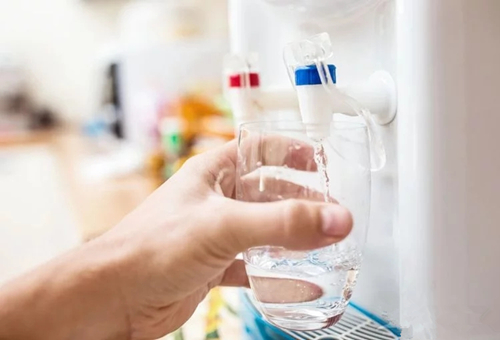Nowadays, as more people become concerned about the safety of their drinking water, many are switching from bottled purified water to tap water, believing it to be safer and healthier. However, a common myth circulating online claims that long-term consumption of bottled water can lead to cancer. Is there any truth to this?

**Does Drinking Bottled Water Cause Cancer?**
After investigating the origin of this claim, it turns out that some people believe that harmful substances from plastic bottles may leach into the water when it's left for too long, potentially causing cancer. But is this really true?
In reality, this concern is largely unfounded. The plastic bottles used for bottled water are designed to withstand normal temperatures. They only begin to break down at extremely high temperatures—around 120°C—and even then, the rate of degradation is very low. The amount of harmful substances released would be negligible and not enough to pose a real health risk.
Moreover, reputable manufacturers ensure that their packaging materials are safe and free from harmful chemicals. So, as long as you're buying from trusted brands, there’s no need to worry about cancer from drinking bottled water.
**Three Common Misconceptions About Bottled Water**
Although the idea that bottled water causes cancer is false, there are still several things to be cautious about when using bottled water.
**1. Don’t Leave Opened Bottled Water for Too Long**
Once a bottle of water is opened, it should be consumed as soon as possible. While it won’t cause cancer, leaving it open for extended periods allows bacteria from the air to enter the water, increasing the risk of contamination. This can lead to stomachaches, diarrhea, and other digestive issues.
**2. Avoid Storing Bottles in Hot or Direct Sunlight**
Many people store their bottled water in boxes for convenience, but it’s important to keep them in cool, dry places away from direct sunlight. High temperatures can speed up bacterial growth in the water, which can affect its quality over time.
This is especially true for water dispensers. To maintain the freshness and safety of your water, place the dispenser in a cool area or cover it with a shade if it’s exposed to sunlight.
**3. Clean Your Water Dispenser Regularly**
If you use a water dispenser, make sure to clean it regularly. Over time, bacteria like *E. coli* and *staphylococcus* can accumulate inside the unit, especially in the reservoir. These harmful microbes can mix with your drinking water and cause illness. It’s recommended to thoroughly clean the dispenser, both inside and outside, every two months to ensure it remains hygienic and safe.
Lifepo4 Battery
Conventional performance lithium iron phosphate battery: suitable for general application scenarios, such as energy storage systems, UPS power supplies, etc.
High-performance lithium iron phosphate batteries: With higher energy density, longer cycle life and better safety, suitable for high-end applications such as electric vehicles.
In addition to the above classification methods, lithium iron phosphate batteries can also be classified according to other criteria, such as battery capacity, charging speed, discharge performance and so on. These classification methods help users choose the right lithium iron phosphate battery products according to their specific needs.
Lithium iron phosphate battery, as an important type of lithium ion battery, has been widely used in many fields. It is classified in various ways, including by shape, performance, application field and other criteria. Users can choose the appropriate lithium iron phosphate battery products according to their specific needs to meet the needs of different scenarios.
Solar system lifepo4 battery, wind system lifepo4 battery, UPS system backup lifepo4 battery
Foshan Keylewatt Technology Co., LTD , https://www.klwenergy.com
